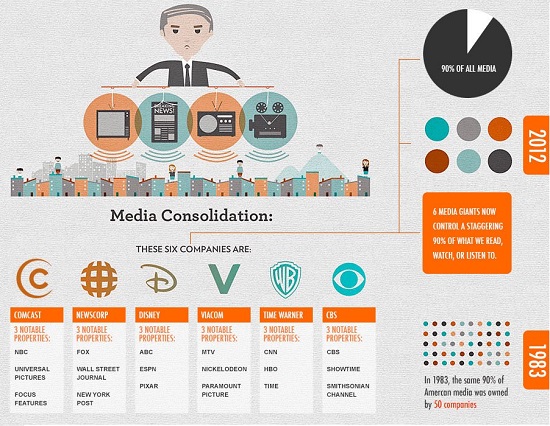We can no longer trust data and conclusions being published as impartial by institutions that were once trustworthy.
When someone says they "know" what's happening on the ground in Syria, how can we assess the validity of their claim to knowledge, i.e. their claim to "know" "facts" or (gasp) "truth"?
When someone says they "know" the U.S. economy is growing and unemployment is at record lows, what is the basis of their claim to knowledge?
Before you tell me what you "know," tell me your sources. We all know how this works nowadays: the sources are rigged or gamed to support the pre-selected narrative.
In "fake news," the sources are designed to appear legitimate via official-sounding institutional titles for the source organizations and human "experts" / researchers, and the data that's presented to support the "fake news" is also designed to be indistinguishable from legitimate data.
The cursory consumer of such content will be inclined to grant the institution, source and data as equal in legitimacy to other accepted sources. For example, if we read that the United Nations Labor Information Council has collected data showing the U.S. unemployment rate is actually 7.2% rather than the official 3.9%, the invocation of the UN and the precision of the data point suggests a legitimate source and data base.
But it's "fake news;" there is no United Nations Labor Information Council (at least not to my knowledge).
Official sources have learned that the most effective way to propagate the sanctioned narratives is to rig or game the data and/or its interpretation. Thus the bailouts of the U.S. "too big to fail" financial institutions in 2008-09 were purposefully obscured; it took independent researchers to assemble all the bailout guarantees and publish the staggering total of over $16 trillion.
official data is massaged to promote the official narrative. This is well-known to anyone who digs into the actual mechanics of the adjustments made to the raw data. For example, to mask real-world inflation, big-ticket expenses such as healthcare are minimized as a percentage of the basket of expenses being measured, and hedonic adjustments reduce the sticker price we actually pay.
The unemployment rate of 3.9% is based on excluding 95 million working-age residents from the labor pool. Many of these people are indeed unavailable for work, but millions have been categorized as "discouraged" and thus are not counted as being in the work force.
In other words, the process of rigging and gaming "facts" to support a pre-determined narrative is identical for both "fake news" and "official news."When researchers compared electricity consumption in China with the official growth rate, a vast discrepancy appeared: electrical consumption, a reliable indicator of economic activity, lagged the official growth rate.
The official response was to stop reporting electrical consumption data or rig the numbers to match the official narrative.
Now that the loss of trust in official reporting of data is widespread (due to the obviousness of the rigging / gaming / manipulation), the institutions tasked with generating belief in the sanctioned narratives are accusing anyone questioning the officially sanctioned data or narratives of issuing "fake news."
The irony is thick enough to cut with a knife: as institutions gin up ever more dubious "evidence" that all is well with the status quo, the line between "official news" and "fake news" has effectively dissolved.
We are now being bombarded with engineered data from supposedly legitimate sources that's explicitly designed to support insider rackets or profiteering cartel. A prime example is medical/pharmaceutical research data, which is increasingly funded by self-serving corporations or institutions with the explicit goal of finding (or rigging) evidence supporting some claim of efficacy that is highly profitable to the owners of the medication/genetic material.
In other words, we can no longer trust data and conclusions being published as impartial by institutions that were once trustworthy as these institutions become politicized or funded by corporations whose sole goal is to maximize profits by any means available.
Much of this legerdemain is statistical and therefore difficult for laypersons to analyze or assess. Despite the educational industry's focus on STEM skills (science, technology, engineering, math), relatively few citizens seem equipped to read the results of a pharmaceutical Stage III trial (human subject trials for the efficacy and risks of a new medication/treatment) or scientific paper that supports some overarching policy or a "headline number" such as GDP or unemployment.
A skeptical reader naturally looks for weaknesses such as small sample size, wide margins of error, various assumptions made when eliminating data samples, and so on.
The general lack of interest and/or ability to make even a rudimentary critical assessment of the officially sanctioned evidence and narratives plays right into the hands of those engineering the evidence.
But the Internet is messing everything up by providing a universal forum for skeptics to publish critical assessments of officially sanctioned evidence. The spectrum of critics is wide, ranging from those promoting improbable theories backed by little substantiated evidence to those who have conducted rigorous critiques that interested parties can critique.
Such a forum requires a skeptical populace with critical-thinking skills and the willingness to ask cui bono--to whose benefit? As institutions are politicized and dissenters are marginalized and profit-maximizing organizations fund their own self-serving research, it falls to the citizenry to sort the wheat from the politicized. self-serving chaff.
NOTE: Contributions/subscriptions are acknowledged in the order received. Your name and email remain confidential and will not be given to any other individual, company or agency.
Thank you, William C. ($50), for your marvelously generous contribution to this site -- I am greatly honored by your steadfast support and readership.
| |
Thank you, Hugh S. ($5/month), for your wondrously generous pledge to this site -- I am greatly honored by your support and readership.
|




























